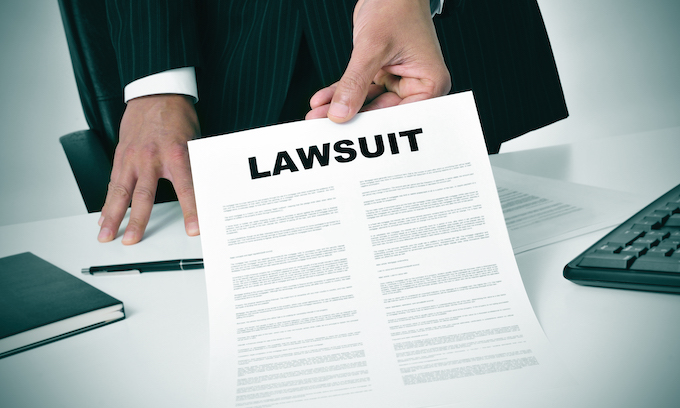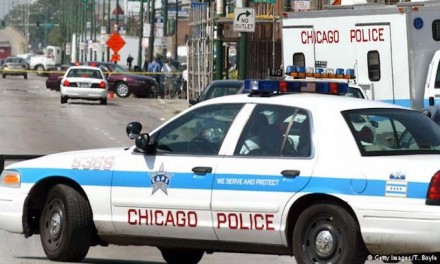Since the conservative-leaning Supreme Court overturned landmark rulings that have provided federal protections for abortion since 1973, there has been a surge in litigation over politicians seeking to implement bans against the medical procedure and abortion advocates trying to thwart those attempts.
Thirteen states have passed so-called trigger bans that are to go into effect following the Supreme Court’s decision to overturn Roe vs. Wade last week, but several of those efforts, including in Mississippi, Utah, Louisiana and others, were met with lawsuits Monday.
Mississippi
In Mississippi, Attorney General Lynn Fitch announced Monday that she had certified the state’s 2007 trigger law that prohibits all abortions except for pregnancies caused by rape or that threaten the life of the mother.
With Fitch’s certification, the law will take effect in 10 days.
“As we proceed in this post-Roe world, the people of Mississippi and of all the states will be able to fully engage in the work of both empowering women and promoting life,” Fitch said in a statement. “I am grateful that the court has given us this opportunity.”
However, the Center for Reproductive Rights filed a lawsuit Monday on behalf of the state’s last abortion clinic, Jackson Women’s Health Organization, asking the court to prevent the enforcement of the ban, arguing residents of the state have a separate right to abortion under Mississippi’s constitution.
The lawsuit points to a 1998 ruling by the state’s high court that found that “[n]o right is held more sacred … than the right of every individual to the possession and control of his own person” and that no act is more personal and private than that which has to do with “one’s own reproductive system.”
“The Mississippi Supreme Court’s 1998 decision interpreting the Mississippi Constitution exists completely independent of the U.S. Supreme Court’s decisions about the federal constitution,” Rob McDuff, a lawyer with the Mississippi Center for Justice, said in a statement. “It is binding precedent.”
Utah
In Utah, a district judge blocked the state’s 2020 trigger law days before it was to take effect on Friday.
The trigger law makes performing the medical procedure in the state a second-degree felony, and bans all abortions except in cases of incest and rape or if the fetus has a health condition that is “uniformly diagnosable and uniformly lethal” or “has a severe brain abnormality.” Both conditions must be confirmed by two physicians.
The injunction was awarded to the American Civil Liberties Union, which is representing Planned Parenthood and had filed a lawsuit asking for a restraining order on Wednesday, arguing that protections in the state’s constitution are more expansive than those under federal law, specifically those concerning Utahns’ right to determine if they are to have a family. They argue that the protections in the state’s constitution are unaffected by the overturning of Roe vs. Wade.
“Today is a win, but it is only the first step in what will undoubtedly be a long and difficult fight,” Karrie Galloway, president and chief executive of Planned Parenthood Association of Utah, said in a statement.
Louisiana
A Louisiana judge similarly on Monday blocked the state’s trigger law from taking effect, which would have banned the medical procedure at any stage of pregnancy and does not include exceptions for rape or incest.
The Center for Reproductive Rights, which filed the lawsuit seeking the injunction, announced on Twitter that the law had been temporarily blocked and abortions may resume.
The center had filed the lawsuit on behalf of abortion providers, challenging the ban as “unconstitutionally vague.”
Joanna Wright, a partner at Boies Schiller Flexner LLP, described the state’s trigger law as a violation of due process as it was “rushed and poorly conceived.”
“The Louisiana Constitution does not tolerate such a state of affairs and this lawsuit requires Louisiana to comport with the rule of law as required by its own constitution,” Wright said in a statement.
Idaho
Planned Parenthood filed a lawsuit Monday in the Idaho Supreme Court seeking to stop the state’s trigger law from going into affect later this summer.
The law, which was passed in 2020, goes into effect 30 days after the overturning of Roe vs. Wade and bans abortions with exceptions to prevent the death of the mother or if the fetus is the result of rape or incest.
The ban is enforced through felony charges that will subject anyone who performs the medical procedure with between two and five years’ imprisonment. Healthcare professionals who violate the ban will have their medical license suspended for at least six months for a first offense and permanently upon a second offense.
The lawsuit, similar to the one filed in Louisiana, states the ban violates residents’ right to privacy and equal protection under the state’s constitution while also being vague so that medical providers will be uncertain of when they can provide care to their patients.
“If allowed to take effect, the ban will prevent healthcare professionals from providing necessary medical care, forcing patients to travel out of state if they have the means, carry an unintended or dangerous pregnancy to term against their will or look for abortion care outside the healthcare system,” Planned Parenthood said in a statement.
“Without relief, the ban will disproportionately impact Idaho’s communities of color, people with low incomes and those living in rural areas.”
Kentucky
In Kentucky, the American Civil Liberties Union on behalf of two abortion clinics and a physician filed a lawsuit seeking an injunction against the state’s 2019 trigger law, which bans abortions as a 4 Class D felony as well as a second law that bans the medical procedure after six weeks into a pregnancy.
The ACLU argues in the court document that the bans and their irreparable harms are “an affront to the health and dignity of all Kentuckians.”
Specifically, the lawsuit states the bans violate the state’s constitution by infringing on the abortion providers’ right to privacy and self-determination.
“Since Friday, Kentuckians have been turned away from appointments and denied the ability to control their own bodies and futures,” Brigitte Amiri, deputy director of the ACLU Reproductive Freedom Project, said in a statement. “The impacts will be long-lasting, with countless people enduring serious health risks from forced pregnancy and childbirth, making it harder to escape poverty and derailing education, career and life plans.”
Kentucky Attorney General Daniel Cameron, who is named as a defendant in the case, issued a statement on Friday following the Supreme Court’s decision, stating they were entering “a new era.
“No longer will unelected judges make abortion policy for the commonwealth. Instead, our elected representatives will be able to make public policy that reflects the values of Kentuckians and our deeply held respect for unborn life,” he said.
Texas
The American Civil Liberties Union sued Texas on Monday to halt its trigger ban passed last year from going into effect 30 days after the overturning of Roe vs. Wade.
Once in effect, all abortions except for under “limited circumstances” such as to save the life of the mother, will be permitted, Attorney General Ken Paxton said Friday in an advisory.
Medical professionals who violate the law will be committing a first-degree felony if the fetus dies as well as be fined no less than $100,000 civil penalty for each violation.
The lawsuit against the state argues that though the law is to go into effect after the Supreme Court issues its judgment, which could take at least 25 days or longer following the high court issuing its opinion, Paxton has been threatening abortion providers with penalties.
In the advisory, Paxton said abortion providers could be criminally charged under the trigger laws “starting today.”
Since then all abortions in the state have ceased, the lawsuit states.
Julia Kaye, staff attorney with the ACLU Reproductive Freedom Project, said in a statement that while abortion bans could soon be in effect in the state they have yet to be enacted, despite Paxton’s “campaign to stop all abortions immediately by threatening unlawful prosecution under antiquated laws.”
“Every day that clinics in Texas can remain open will save countless pregnant Texans from the life-altering medical, emotional, financial and educational consequences of having their bodies held hostage by state politicians,” Kaye said.
Copyright 2022 United Press International, Inc. (UPI). Any reproduction, republication, redistribution and/or modification of any UPI content is expressly prohibited without UPI’s prior written consent.
—-
This content is published through a licensing agreement with Acquire Media using its NewsEdge technology.



















Ah, Pelosi led democrats,,,,What a face, what a figure, two more legs and she’d look like Trigger, Roy Rogers wonder horse. She and her squads of odd political clods, would give the nod to stop our trigger bans on the murder of innocent Americans in the womb, just as they would lock our gun triggers needed to defend ourselves and our lives from their proposed social evils.
“In Mississippi, Attorney General Lynn Fitch announced Monday that she had certified the state’s 2007 trigger law that prohibits all abortions except for pregnancies caused by rape or that threaten the life of the mother.
Maybe we should keep the child and start aborting the rapists that threaten the lives of secure American motherhood. When there are no consequences, and proven rapists like Clinton become your party’s moral standard bearer, and in Democrat cities rapist get released within hours by prosecutors, maybe it’s time for things/ parties in power to change.
I am ok with aborting rapists and child molesters.